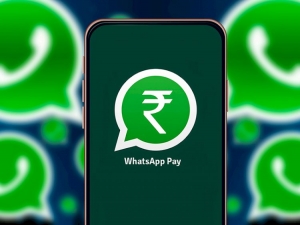WhatsApp lost control of the messaging around its updated data privacy policy, which pertains to use of the app by businesses for customer service (and storage of chats on Facebook servers), not consumer chats and profile data. Given Facebook's spotty track record in that area and the fast spread of misinformation on social media, it did not take long for a WhatsApp backlash to emerge. Vijay Shekhar Sharma, CEO of Alibaba-backed Paytm, said on Twitter, “Here in India WhatsApp/Facebook are abusing their monopoly and taking away millions of users’ privacy for granted." Shekhar added that his compatriots should "move on to" the encrypted messenger service Signal lest they "become victims."
The Paytm CEO was not commenting purely out of altruism. Paytm is one of the local fintechs with the most to lose if WhatsApp Pay makes fast headway in India. It has a large suite of digital financial services in its app but nothing that boasts the stickiness of WhatsApp's messenger.
Meanwhile, in early February India's Supreme Court asked WhatsApp to respond to a plea. That plea seeks a direction to the Reserve Bank of India (RBI) and the National Payments Corporation of India (NPCI) to ensure that data collected on India's Unified Payments Interface (UPI) platform is under no circumstances shared with WhatsApp's parent company or any other third party.
This turn of events puts WhatsApp in damage control mode when it should be focused on ramping up the launch of its e-wallet in India. Yet the company must reassure its Indian users and the country's regulators that it can be trusted with user data. Without winning their trust, WhatsApp will never become a successful financial services provider.
For the time being, WhatsApp will remain far behind India payments market leaders PhonePe and Google Pay. In January, PhonePe processed 968.7 million transactions and had a market share of 42% while Google Pay recorded 853.5 million transactions and was close behind with 37%, according to Entrackr. Paytm's Payments Bank was third with 281.2 million transactions. By comparison, WhatsApp Pay's market share was tiny, with just 560,000 transactions, down from 810,000 in December 2020.
On January 1, a 30% cap on the UPI transaction volume of third-party payment providers (which does not apply to Paytm) came into effect. However, it remains to be seen how the policy will be enforced. Indian regulators say that third-party payment providers have two years to comply with the edict.

